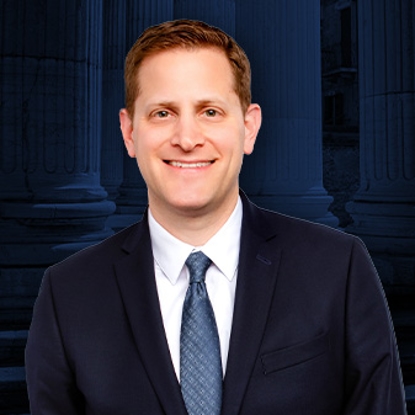
New York Reasonable Accommodation Attorneys
New York State Human Rights Law Reasonable Accommodation
Individuals living with disabilities often face unique challenges when navigating a workplace that is not necessarily built for them, but they are nonetheless expected to be as productive as their able-bodied peers. Simple but important adjustments have the potential to dramatically improve quality of life and performance, but employers may resist making “special exceptions.”
Under both the federal American with Disabilities Act and New York State Human Rights Law, employers are not allowed to discriminate against disabled employees. In practice, this means that employers are often required to provide reasonable accommodations that will assist these employees in performing their job responsibilities.
Our New York reasonable accommodation lawyers at Schwartz Perry & Heller LLP can ensure your employer honors their obligations and institutes the necessary modifications that will help you do your job. Our team has over 100 years of legal experience in defending human and employee rights in New York. We are intimately familiar with the reasonable accommodations process and can provide the legal support that you need when working with an uncooperative employer.
If you are struggling to secure reasonable accommodations, do not hesitate to call (646) 490-0221 or contact us online to discuss your case with us.
Who Can Request Reasonable Accommodations in New York?
In New York, there are 4 categories of employees that are entitled to request reasonable accommodations under the New York State Human Rights Law. Any employer with 4 or more employees is required to attempt to accommodate workers in these categories.
An employee in New York can request reasonable accommodations if they:
- Live with a disability
- Have sincerely held religious beliefs that interfere with some element of the job
- Are pregnant, have recently given birth, or are managing a related medical condition
- Are the victim of domestic violence, sexual misconduct, or stalking
For purposes of reasonable accommodation, a disability is defined as any physical or mental condition that limits one or more major life activities. The impaired life activity must in some way interfere with the employee’s ability to complete essential job responsibilities.
If a disability or condition is not necessarily obvious, employers have a right to ask for a letter from a medical professional confirming the nature of the condition and any limitations it imposes. The letter should also include any recommended changes that will assist the employee in doing their work.
What Counts as a Reasonable Accommodation?
A reasonable accommodation in the workplace is defined as any adjustment or modification that better enables an employee to complete their essential job responsibilities. This can vary widely depending on the nature of the disability or reason for seeking an accommodation.
Common examples of reasonable accommodations for employees living with disabilities include:
- Working from home or remote work
- Modified or flexible work schedules
- Wheelchair ramps and reorganizations of office layouts
- Accessible parking spaces
- Additional training and resources, including interpreters
- Reliably scheduled breaks
- Adjusted workstations
Reasonable accommodations for employees in other qualifying categories may differ. Employees with certain religious beliefs may request adjustments to a company uniform policy to allow for a religious garment, for example. A woman who has recently given birth may need a designated space to breastfeed. Victims of stalking or domestic violence may need to be temporarily situated out of public-facing areas to avoid unwanted encounters.
An employer can only deny a requested reasonable accommodation if they can demonstrate that the adjustment will represent an “undue hardship.” This is often difficult to prove, and the employer is required to provide compelling evidence that the requested accommodation constitutes undue hardship.
How the Reasonable Accommodations Process Works in New York
When you believe that you need a reasonable accommodation in order to perform your essential job responsibilities, you can alert your employer at any time verbally or in writing. The request should include the specific reasonable accommodation that you are seeking. You do not necessarily need to go into detail about why you need the accommodation: You can simply state that you need the reasonable accommodation for a “medical condition,” for example. However, your employer may request more information to aid in their evaluation of the request.


Why Choose Schwartz Perry & Heller LLP?
-
100+ Years of Collective Experience
-
Personalized & Compassionate Service
-
Award-Winning Legal Counsel
-
A Track Record of Success

Our Testimonials
Our Past Clients Speak to Our Experience
-
"Always available, conscientious and extremely knowledgeable."
Outstanding lawyer. Always available, conscientious and extremely knowledgeable. Excellent at following-up both with his clients and with opposing counsel. Regardless of the size of the case, Brian will put in the work and always treat his clients with the utmost professionalism and respect.
- N.W. -
"I trusted them entirely."
I received the most compassionate and professional assistance from SP&H. I felt that Mr. Heller truly cared about me and the situation I was in. He was able to be my voice during a difficult time. He responded promptly to any correspondence, took the time to explain to me any questions or concerns, and helped ease any kind of stress that I had during a dispute with a previous employer. I highly recommend this firm. You are not just a number, they treat you like family. I trusted them entirely. I thank you from the bottom of my heart for all of your devoted time and effort in my legal matter.
- A.M. -
"Their integrity, personal attention, and knowledge are superior."Schwartz, Perry & Heller, LLP are the most skilled Lawyers for your discrimination case in the Tri-State area. Their integrity, personal attention, and knowledge are superior. They won my case and can win yours. Nothing beats the best.- D.K.
-
"Caring, smart, highly skilled negotiators"Davida Perry and Brian Heller are very caring, attentive and highly skilled negotiators who gave me expert representation to win my negotiation and achieve my goals.- D.
-
"Words are inadequate to express how truly grateful I am to Schwartz & Perry, especially Brian Heller for his help."Words are inadequate to express how truly grateful I am to Schwartz & Perry, especially Brian Heller for his help. I first met Mr. Schwartz and Brian Heller a few years ago when I was working at an international firm in an IT role when I contacted them for the free consultation because I felt that I was being setup to be fired. I knew I was being treated unfairly by my manager. I felt utterly helpless and had no idea who to turn to. After meeting with Mr. Schwartz and Brian Heller, I came to understand that the unfair treatment I endured was actually discrimination. They counselled me through being fired and negotiating a settlement; an extremely upsetting and exhausting experience. They explained the rules of employment law while treating me with dignity and kindness. Due to the skill and knowledge of these attorneys, I received a substantial settlement and was able to move on to another company with my self-respect intact and without the financial hardship that would have resulted from losing my job. They also ensured that this employer could not damage my reputation going forward with future employers. Recently, when I had another issue with a different employer; I called Brian Heller right away. I knew that Brian, being extremely well versed on the latest employment laws, would be able to help me. Brian carefully guided me and I was able to “ride the wave” of unprofessionalism and threats of litigation coming my way from my former employer’s attorney. My former employer thought that they could bully and frighten me into staying with them longer so that my new job opportunity would no longer be available, and then they could let me go when it was convenient for them - and I’d be out of work. They didn’t know that I have a Secret Weapon – Brian Heller! Once Brian was on the case, those threats ceased and I was able to accept my new wonderful job and leave the worry and stress behind. I highly recommend Brian Heller and Schwartz & Perry as a firm. Over the years Brian has always treated me with kindness and respect and I have peace of mind because I have someone I trust who is on my side, who can guide me and who is willing and extremely capable of protecting my rights.- Former Client
-
"From day 1 of the consultation to the very end I felt like the most important client to the firm."Amazing team of Attorneys. From day 1 of the consultation to the very end I felt like the most important client to the firm. Brian Heller who I dealt with personally was amazing. Whether it was a call or email responses were very prompt and I was kept informed every step of the way. Even a few calls just to check in and say hello. Truly an incredible experience and I would recommend them to anyone seeking justice. If they take your case they will fight with you to the end. A+- D.W.
-
"We remain tremendously grateful for his support and look forward to working with him again."On short notice, Brian Heller reviewed contracts with complex international dimensions and found important discrepancies that I and other senior-level executives had missed completely. He was fast, thorough, and detail-oriented in providing pragmatic advice that enabled us to be sure that we were getting the fairest and best possible treatment under the law. We remain tremendously grateful for his support and look forward to working with him again.- Eric
-
"Davida Perry not only did an amazing job calming down my nerves but she fought for me tooth and nail and did a great job securing what my past employer owed me."After having a terrible experience at my last job, facing the anxiety again of having to rehash the treatment was daunting. Davida Perry not only did an amazing job calming down my nerves but she fought for me tooth and nail and did a great job securing what my past employer owed me. I won’t lie, there were moments I wanted to give up, but Davida was always there to help me stay focused and realize that I didn’t need to let them win. She was really great at countering all of their arguments, I pity anyone that would try to prove her wrong. She thought of everything we need and kept me constantly updated. Mostly what I appreciated about Davida was her kindness, and her genuine care for my mental health. She wanted to make sure I was taking care of myself during a very trying time. I cannot recommend this firm enough. They all clearly care about their clients and want to do best for you. Don’t be afraid to stand up for yourself, and if you’re worried about the challenges that lie ahead be sure to team with Schwartz Perry & Heller, they will have your back and fight for justice.- T.B.



